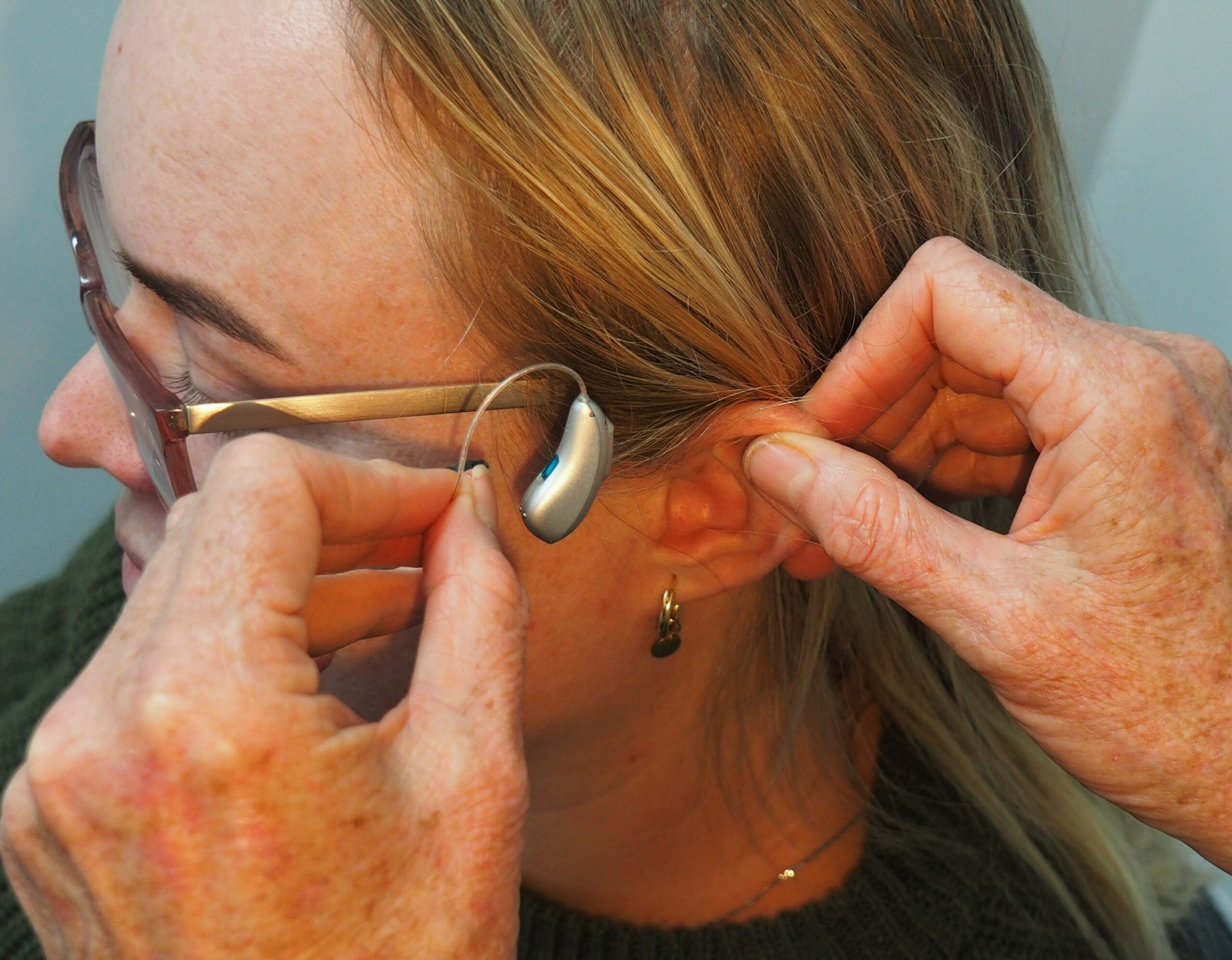Over The Counter (OTC) vs Prescription Hearing Aids

Nearly 20% of the world’s population – more than 1.5 billion people – live with hearing loss, and a lot of the time, it’s overlooked. Finding a solution for hearing loss is important, but it’s more important to choose the hearing aid that is right for you. The two main options include: over the counter (OTC) hearing aids and prescription hearing aids. Most people are familiar with prescription hearing aids, and may not even be aware of the OTC option. We will discuss the differences between the two types, and help you understand which option is best for you.
OTC Hearing Aids
OTC hearing aids are designed for anyone 18+ who have perceived mild-to-moderate hearing loss. With OTC hearing aids being sold in stores and online, their convenience and availability has caught the eye of many people. OTC hearing aids do not require a hearing test or a prescription from a hearing health professional, which makes them easily accessible to anyone. Additionally, you have the freedom to set them up by yourself, including fitting and tuning the sound according to your preferences.
OTC hearing aids are relatively affordable. On average, they range from $300-$600 per device. This affordability makes them an attractive option for individuals on a budget, those looking to try hearing aids for the first time, or those who chose not to have a professional involved.
Prescription Hearing Aids
Prescription hearing aids, on the other hand, are programmed by licensed professionals based on your specific hearing loss. This tailored approach makes sure the device fits perfectly with each patient's specific needs. Prescription hearing aids can help people with different levels of hearing loss, ranging from mild to severe.
Prescription hearing aids also require testing, conducted by a hearing-health professional, to determine the best fit and fine-tuning of the device. And rather than them coming in one cookie cutter style, prescription hearing aids can be customized to match your individual preferences and lifestyle.
Due to the professional help and customization of prescription hearing aids, they come with more of an investment. Prices for prescription hearing aids typically range from $749 to $3400 per device. The purchase covers the hearing aids and traditionally includes the professional service. With Hearing Health Solutions, we have now given patients the opportunity to make a more informed and transparent decision on their purchase of devices. Devices now range from $950-$2200 per device and separate out the professional service. Allowing the patient a choice of professional service time frame that best suits your needs and lifestyle.
A Comparison of OTC vs Prescription Devices
Aside from the price, the main difference between OTC and prescription hearing aids is the level of professional involvement and customization.
OTC Hearing Aids
- Generic programming.
- No complex fine tuning available.
- Basic fine tuning available via patient manipulation.
- No testing required.
- Generic styles available/one size fits most.
- Severity of loss: Mild to moderate.
- Type of loss: Best for non-complex hearing loss.
- Pricing: Device only, services through professional would be paid separately; estimated range from $300-$600/device.
- Returns: Proposed regulations do not require devices to be returnable, return policies will be dictated by device manufacturer.
Prescription Hearing Aids
- Programmed by a licensed professional for specific individual hearing loss.
- Complex fine tuning available via professional.
- Basic fine tuning available via patient manipulation.
- Diagnostic testing conducted and required for fitting.
- Style can vary and be tailored for individual patient wants/needs.
- Severity of loss: Mild to severe/profound.
- Type of loss: Any combination or complexity of hearing loss.
- Pricing: Generally includes hearing devices and all device services; ranging from $749-$3400/device.
- Returns: All states have required and specific policies around availability of device returns.
The Importance Of A Hearing Test
While OTC hearing aids are cheaper and more accessible, it's important to have a hearing test before choosing any hearing aid, whether OTC or prescription. A hearing test provides an in-depth assessment of your hearing health and it helps you determine the best solution for your specific needs.
The Impact Of Untreated Hearing Loss
Untreated hearing loss can have serious and long-term consequences that go beyond hearing impairment. Studies show that untreated hearing loss is associated with cognitive decline, an increased risk of depression, and a higher likelihood of falls. Addressing your hearing loss can help prevent or delay these potential health issues.
Making The Right Choice: Hearing Health Solutions
Both OTC and prescription hearing aids have their advantages and limitations, so it's important to understand your individual hearing needs before making a decision.
OTC hearing aids are a great option for those who are new to hearing loss and aren’t ready to move forward with prescription hearing aids yet. They are also good for those who struggle with mild to moderate hearing loss on a budget. However, for those who want professional help and customization, or those with a more complex hearing loss, prescription hearing aids are likely the better option.
Remember, it’s important to get professional guidance and to take a hearing examination to make sure you are making the most fitting choice for your hearing health. Don't wait to get help for hearing loss. If you have noticed hearing loss or are considering hearing aids, consult with a hearing-health professional to find the best solution for your unique needs. Contact us at Hearing Health Solutions today and take the first step towards better hearing and a healthier life.
